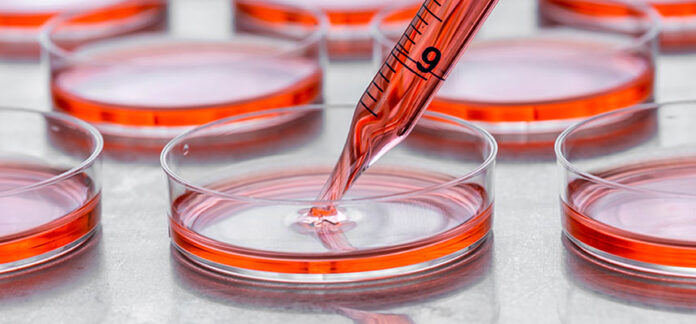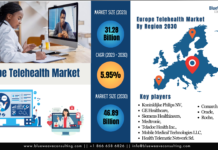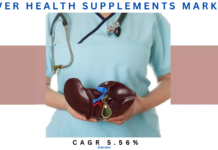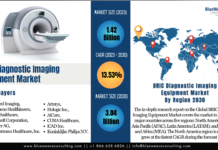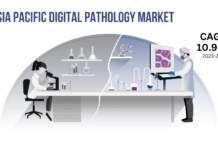Global Recombinant Cell Culture Supplements Market is growing at a high CAGR because of the rising investments in life sciences research and development. The increased preference and use of animal-free supplements is also driving the global recombinant cell culture supplements market.
A recent study conducted by the strategic consulting and market research firm, BlueWeave Consulting, revealed that the Global Recombinant Cell Culture Supplements Market was worth USD 309.3 million in the year 2021. The market is projected to grow at a CAGR of 12.5%, earning revenues of around USD 702.5 million by 2028. The global recombinant cell culture supplements market is booming because of the increasing investment in drug research and development coupled with the rising demand for cell culture supplements. Moreover, the advantages of animal-free biotherapeutics and biopharmaceuticals over traditional animal-derived supplements are driving the growth of the global recombinant cell culture supplements market during the forecast period 2022-2028.
Rising Demand for Recombinant Cell Culture Supplements to Drive the Market Growth
Over the years, the demand for recombinant cell culture supplements has risen. This is because cell culture is an integral part of drug research and development, and manufacturing. With the increasing population, humanity is seeing the advent of novel viruses, fungi, and bacteria, causing diseases. To save humanity against acute and chronic, infectious and non-infectious, communicable and non-communicable diseases, it is essential to invent and produce a variety of recombinant proteins, vaccines, diagnostic reagents, advanced therapies, and biotherapeutics and biopharmaceuticals. They are produced using prokaryotic (bacteria, yeast cells) and eukaryotic (mammalian cells, transgenic plants) expression host systems in large-scale settings. These therapeutic and prophylactic recombinant proteins are produced by continuous upstream processing, continuous chromatography, integrated continuous bioprocessing, etc., to achieve high quality and quantity of proteins. The increased production to fulfill the high demand is expected to bolster the growth of the market in the forecast period.
Request for Sample Report @ https://www.blueweaveconsulting.com/report/recombinant-cell-culture-supplements-market/report-sample
Global Recombinant Cell Culture Supplements Market – By Product
Based on products, the global recombinant cell culture supplements market is segmented into recombinant growth factors, recombinant insulin, recombinant albumin, recombinant transferrin, recombinant trypsin, recombinant aprotinin, recombinant lysozyme, and others. Amidst the segmentation, the recombinant albumin (rAlbumin) segment is expected to grow with the highest CAGR during the forecast period 2022-2028 because albumin is a widely used nutrient in all cells cultures; for example, the production of monoclonal antibodies.
Global Recombinant Cell Culture Supplements Market – Regional Insights
Based on regions, the global recombinant cell culture supplements market has been segmented into five categories- North America, Europe, Asia-Pacific, Latin America, Middle East, and Africa. Amidst the segmentation, North America dominated the global Recombinant Cell Culture Supplements market share in 2021 due to the availability of appropriate technology and sufficient funding. On the other hand, Europe is estimated to grow at the highest rate due to a large number of recombinant cell culture supplement products and manufacturing units, biopharmaceutical organizations and research institutes, and increased government funds for cell science research organizations.
Impact of COVID-19 on Global Recombinant Cell Culture Supplements Market
As a result of the COVID-19 pandemic, worldwide lockdowns were imposed, and manufacturing and operations were seriously affected. This hampered the ongoing research and clinical development of various biopharmaceutical products. To prevent infection from the notorious SARS-CoV-2, research grants were given out for the research and development of Covid vaccines. In the later phases of the pandemic, the government’s emphasis shifted on building a robust supply chain for the transportation of Covid test kits, diagnostics, drugs, vaccines, and recombinant supplements. Due to the recommencement of sales for research purposes, the recombinant cell culture supplement-producing firms were able to maintain their financial position.
Competitive Landscape
Thermo Fisher Scientific Inc., Merck KGaA, Becton, Dickinson and Company, Hi-Media Laboratories, Sartorius AG, InVitro, SeraCare Life Sciences Inc., GE Healthcare, Novozymes A/S, Advanced Biotechnologies Inc., Lonza, STEMCELL Technologies Inc., PeproTech Inc., Sino Biological Inc., FUJIFILM Irvine Scientific, Evercyte GmbH, Kingfisher Biotech Inc. In March 2022, Thermo Fisher Scientific acquired PeproTech, a company that specializes in the development and manufacturing of recombinant proteins, for USD 1.85 billion. The companies aim to expand their business by setting up more manufacturing plants to gain a significant market share. For example, in May 2022, FUJIFILM Irvine Scientific built a new bioprocessing center in China. They also constructed a new cell culture media manufacturing facility in the Netherlands in June 2019.
The in-depth analysis of the report provides information about growth potential, upcoming trends, and statistics of the global recombinant cell culture supplements market. It also highlights the factors driving forecasts of total market size. The report promises to provide recent technology trends in the global recombinant cell culture supplements market and industry insights to help decision-makers make sound strategic decisions. Furthermore, the report also analyzes the growth drivers, challenges, and competitive dynamics of the market.
Contact Us:
BlueWeave Research Blog
Phone No: +1 866 658 6826
Email: info@blueweaveconsulting.com


